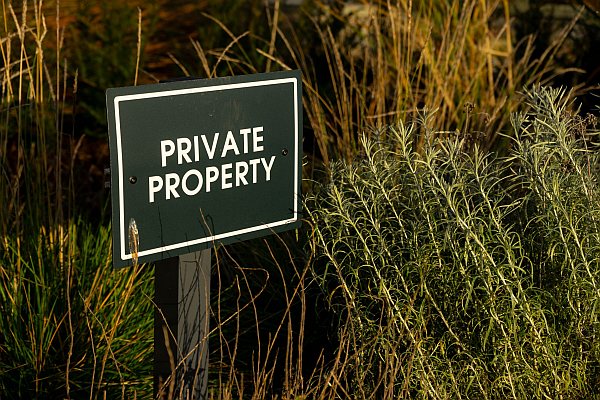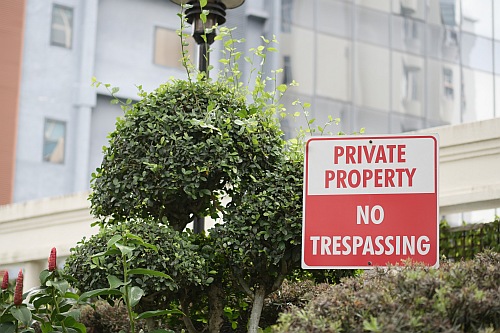Very rarely do people like to admit that they’re a trespasser. In fact, there are lots of times when a person doesn’t even realize they’re trespassing. When our Albany injury lawyers meet with a client for the first time, we do ask if they had a legal right to be on the property where they got hurt.
Whether we can pursue damages will depend on the answer to this question.
How Does the Law Define a Trespasser for Purposes of Personal Injury?
Put simply, a trespasser is somebody who enters or remains on the property of another person without the authority to do so. For the most part, you’re officially trespassing when you’re on private property without permission.
Usually, your Albany injury lawyer will have no problem determining whether you were trespassing at the time of your injury. The difficult part will be proving that you are still entitled to damages.
Of Course, Your Personal Injury Attorney in Albany Will Argue You Weren’t Trespassing
One of the first things the defendant’s attorney will argue is that you were trespassing and, therefore, not entitled to damages. The law does clearly state that property owners don’t owe a duty of care toward trespassers.
This means that your Albany injury lawyer will try to show that you weren’t trespassing. Perhaps you have permission to be on the property. Or you may have been told in the past that you had carte blanche when it came to entering the property.
This can be hard to prove. However, if you have a text message, voice mail, or witnesses who heard the owner give permission, it will help your case tremendously.
Even if You Were Trespassing, Your Albany Injury Lawyer May Still Be Able to Pursue Damages
If your personal injury attorney in Albany isn’t able to prove that you weren’t trespassing, you still have options. There are a couple of exceptions to the rule that property owners don’t owe you a duty of care.
If your Albany injury lawyer is able to demonstrate that you meet one of these exceptions, your case will be a lot stronger. The problem is that these exceptions are very specific. If the facts don’t support your claim, your case may be dismissed.
Normally, Property Owners Have a Duty to Maintain Their Premises in a Safe Condition
According to Georgia law, property owners do owe a duty of care when people are on their premises. For example, a grocery store owner must offer their customers a clean and safe environment. The same is true for other commercial property owners.
The same is true for homeowners. If someone invites you to a party and you get hurt, you may be able to file a claim against their insurance policy.
When it comes to trespassing, however, these duties do not exist.
There Is An Exception to the Rule Regarding Trespassers
There is one exception carved out by Georgia Statute §51-3-3. According to this statute, a property owner is not allowed to intentionally create a condition that would injure a trespasser.
For example, homeowners aren’t allowed to load spring guns on their lawns to hurt people trespassing on their property. They can’t dig a hole, hoping that a child or even an adult walking on their property will fall and get hurt.
Beyond that, however, the homeowner doesn’t really owe trespassers any duty at all. They are not required to protect trespassers from harm.
Can Your Personal Injury Attorney in Albany Prove There Was an Attractive Nuisance?
One other exception to the rule about trespassers is the “attractive nuisance” rule. This typically only applies to children. If a property owner has an item on their property that would appeal to children, they have to expect kids to enter their property without permission.
An example of this would be a homeowner who has a pool in their yard. They don’t have a fence up and there is nothing preventing a local child from entering the yard and jumping in the pool.
If a child drowned or otherwise became injured in the pool, the property owner would likely be civilly liable.
Did the Defendant Act Recklessly or With Wanton Indifference?
For your personal injury attorney in Albany to prove that an exception applies, they’ll need to specifically show that the facts support the exception. They will need evidence – strong evidence – showing that you were trespassing but still entitled to some level of protection.
If your Albany injury lawyer is able to prove this, there is a chance you may be entitled to damages. Just keep in mind that, since Georgia follows the modified comparative negligence rule, your damages may be reduced.
How Does the Comparative Negligence Rule Affect Your Case?
According to Georgia Statute §51-11-7, a plaintiff can collect damages, even if they were partially at fault in their accident. However, their damages will be reduced by their percentage of fault. In addition, they cannot be more than 50% at fault.
When it comes to your premises liability case, being a trespasser will count as being partially at fault. This means that your damages will be reduced by a significant percentage. Your Albany injury lawyer will have to work hard to negotiate a settlement to avoid having your damages reduced by too great an amount.
If You Were Injured While Trespassing, You Should Contact an Albany Injury Lawyer
Normally, if you’re trespassing on someone’s property and get injured, you will not be able to sue them for damages. Well, that isn’t exactly true. You can sue them. However, your Albany injury lawyer would not be able to get you damages.
The law is rather clear when it comes to trespassers and premises liability. The general idea is that property owners should not have to worry about protecting people who have no right to be on their property.
There are exceptions to this rule, however. The only way to know for sure if you may qualify for one of these exceptions is to contact our personal injury attorneys in Albany.
We suggest you contact our office so we can schedule your free, initial consultation. This is the best way for you to get answers to your questions. Since you don’t have to pay our firm anything until we settle your case, you have nothing to lose.










